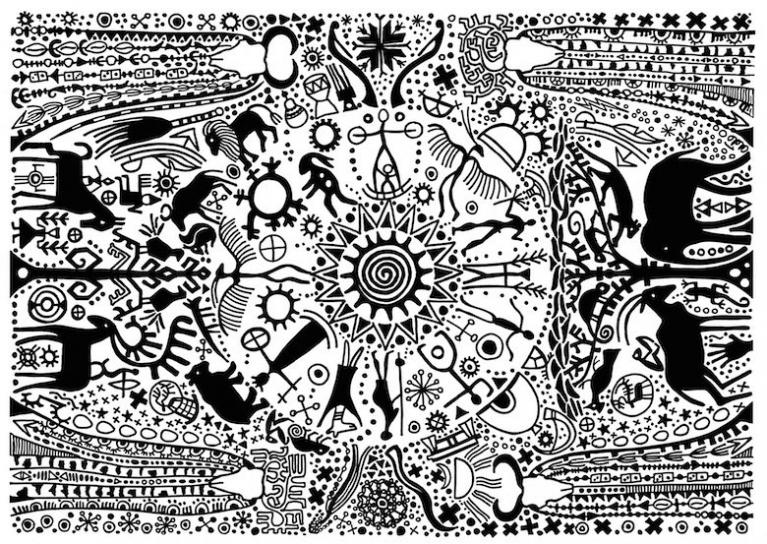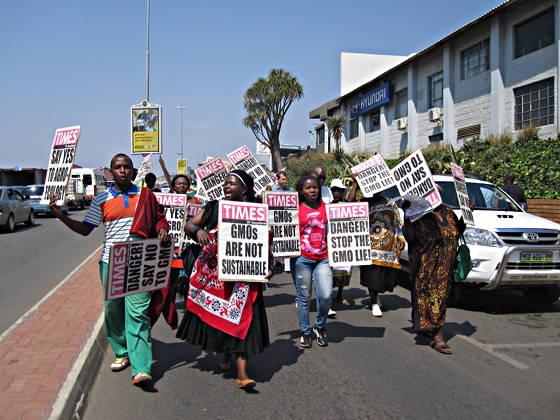Latest Resources

20 March 2020
The Monoculture effect and COVID-19
An ACB statement on Human Rights Day, 21 March The COVID-19 outbreak illustrates the complex interactions between deforestation, reduced biological diversity, ecosystem destruction, and human health and safety, in large part driven by the globalised agricultural and food system. Further, with the threats posed by climate change, we can expect greater exposure to existing and […]

25 February 2020
Insights from farmer dialogues in Kalulushi, Zambia
In 2019, the African Centre for Biodiversity (ACB) co-hosted four farmer exchanges in Zambia. The first was in Kalulushi, Copperbelt Province, in partnership with the Zambia College of Horticultural Training (ZCHT) Chapula, Kasisi Agricultural Training Centre (KATC), and the Zambia Alliance for Agroecology and Biodiversity (ZAAB). ACB Advocacy and Research Officer Rutendo Zendah gives an […]

28 March 2019
Cyclone Idai’s warning – Shift to agroecological systems that work with nature or suffer more dev...
Ranked as one of the worst tropical storms on record to hit Africa, Cyclone Idai made landfall in Beira on Thursday 15 March, before lacerating its way across central Mozambique and then on towards neighbouring Malawi and Zimbabwe. Heavy rains, flooding and storm damage has resulted in devastation on a vast scale. It is estimated […]

8 March 2019
Urgent call for African food sovereignty movements to connect with radical feminist movements on ...
This article was first published on the Inter Press Service Agency, on March 8, as part of its coverage of International Women’s Day. Africa is facing dire times. Climate change is having major impacts on the region and on agriculture in particular, with smallholder farmers, and especially women, facing drought, general lack of water, shifting […]

4 March 2019
Failure of Monsanto’s drought tolerant maize pushed on Africa – confirmed in US
The ACB shares with you a blog written by ACB’s Sabrina Masinjila and Anne Maina from Biodiversity and Biosafety Association (BIBA), Kenya A recent United States Department of Agriculture (USDA) report confirms what independent biosafety scientists, and African civil society, have been stating all along: Monsanto’s drought tolerant (DT) maize (MON87460) does not work! The […]

1 November 2018
Demystifying GM maize through collective action on World Food Day
In an effort to highlight the complex and concentrated South African agricultural and food system, with its unsustainable and deepening inequality, the African Centre for Biodiversity (ACB) and partner organisations initiated a “no GMO-maize campaign” earlier in 2018. This was followed up in August 2018, with a meeting of organisations that included Zingisa, Ntinga Ntaba […]

4 June 2018
The debate on GMOs in Africa rages on, this time in Tanzania
A heated public debate on genetically modified organisms (GMOs) ensued during a seminar organised by MVIWATA – a network of smallholder farmers – in Morogoro, Tanzania. The meeting took place on 12 May 2018 and was attended by more than a hundred people, including parliamentarians and high-level government officials. The event, which was intended only […]

28 May 2018
Biosafety Indaba eSwatini: Unclear motives following approval to cultivate Bt cotton, despite dis...
The news that the Swaziland Environmental Authority (SEA) had authorised the importation and commercial release of Bt cotton seeds came as a huge shock to the African Centre for Biodiversity (ACB). It meant that ACB had to reconsider its earlier acceptance of an invitation by SEA to attend a National Biosafety Indaba on 22 May […]

18 October 2017
The GMO crisis in Swaziland
Swaziland is under enormous pressure to introduce genetically modified organisms (GMOs) into the country’s farming system. This pressure is coming not only from Monsanto but also from farmers and some sections of the public who have been fed a great deal of misinformation and hype by the pro-biotech machinery. The farmers, acting on incomplete and […]

31 July 2017
The Water Efficient Maize for Africa (WEMA) project: Real or false solution to climate change?
By Lim Li Ching, Senior Researcher, Third World Network Climate change is an urgent challenge facing farmers in Africa. As our world warms, many farmers are already experiencing devastating consequences, including storms, drought, floods, heat waves and extreme weather events. The implications for food security are severe, with the Intergovernmental Panel on Climate Change (IPCC) […]
